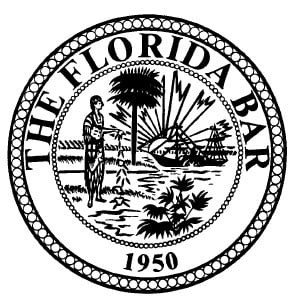In the Community
By Ian R. Leavengood
Recently, LeavenLaw partner, Ian R. Leavengood, and LeavenLaw Senior Associate, Aaron M. Swift, were asked to address members of the Florida Bar, speaking to its membership regarding Technology and Consumer Law. Ian Leavengood sat on a panel of three persons who discussed the Telephone Consumer Protection Act (TCPA) and its development surrounding the use of automatic telephone dialing systems to place debt collection and telemarketing calls to consumers’ cellular telephones without prior express consent to do so. Joining Mr. Leavengood on the TCPA panel were Benny Davis, principal at American Legal Claims Services, a Class Action Administration firm out of Jacksonville, FL that administers TCPA class action cases, as well as Joshua Threadcraft, a partner with Burr & Forman, LLP’s Birmingham, AL office, who represents industry in the defense of TCPA, FDCPA, and FCRA claims. On the second panel, Mr. Swift was joined by Steve Salzer of PSCU, and they discussed the Electronic Funds Transfer Act (EFTA) and the types of transactions it covers.
Telephone Consumer Protection Act

More specifically, Mr. Leavengood spoke about the TCPA’s application to debt collection calls made by creditors and debt collectors to a consumer’s cellular telephone after the consumer either told the creditor or debt collector that they were represented by an attorney with respect to said debt, hired an attorney to defend them in a mortgage foreclosure lawsuit, or filed for bankruptcy but were still receiving the auto-dialed debt collection calls. Under all three scenarios (in Mr. Leavengood’s opinion) such calls are unlawful and made in violation of the Telephone Consumer Protection Act, or the TCPA. The reason they are unlawful? Because once an attorney represents a consumer with regard to the debt, other consumer protection statutes require that ALL direct debt collection communications with the consumer cease, which would include auto-dialed or robo-calls made to a consumer’s cellular telephone. For each call that is made by a creditor or debt collector to a consumer’s cell phone after said creditor or debt collector has been advised of attorney representation, the creditor or debt collector can be liable for $500.00 to $1,500.00 per call. Additionally, the TCPA provides for injunctive relief, which means that the consumer and his or her attorney can ask for a Court order requiring that the auto-dialed calls be stopped. Finally, if the calls are debt collection calls, the consumer likely has the ability to also bring a Florida Consumer Collection Practices Act or Fair Debt Collection Practices Act claim against the entity making the auto-dialed calls. The FCCPA and the FDCPA each provide for $1,000.00 statutory damages (per action; not per call) and attorneys’ fees and costs if the consumer prevails. In the end, if a consumer is getting calls after hiring an attorney – and the creditor or debt collector knows they have hired an attorney – the consumer should have a strong TCPA case with potentially many thousands of dollars in damages.
Electronic Funds Transfer Act
Aaron Swift spoke to Florida lawyers about the Electronic Funds Transfer Act (EFTA) and its application to certain transactions that affect Florida consumers. More specifically, Mr. Swift discussed the EFTA statutory scheme which was enacted in 1978 to protect individual consumers engaging in electronic fund transfers (EFTs). An EFT is a type of funds transfer to or from a depository account (i.e., generally either a checking or savings account) that is initiated electronically. Such transfers include, for example, ATM transactions, point-of-sale debit card transactions, and over-the-phone recurring bill payment plans. The EFTA is separate and distinct from the Truth in Lending Act (TILA) or Fair Credit Billing Act (FCBA) which generally cover credit card transactions.
Generally, the EFTA is both a sword and a shield for consumers. The Act serves as a shield by limiting a consumer’s liability in the event an electronic funds transfer occurs in error (for example, if an ATM disburses less money than requested) or if an unauthorized electronic funds transfer occurs (for example, if a lost or stolen debit card is used by an identity thief). Additionally, the EFTA acts as a sword for the consumer by creating a private right of action if a financial institution fails to follow the Act’s dispute resolution procedures. Specifically, once a consumer notifies a financial institution of an erroneous or unauthorized EFT, then the financial institution must investigate the error within 10 days and provide written notice of the investigation results to the consumer. The financial institution may choose to investigate up to 45 days; however, in that event, the financial institution must provisionally re-credit the consumer’s account in the amount in dispute. If the financial institution fails to follow the EFTA dispute resolution procedure, then the consumer may be entitled to statutory damages up to $1,000, treble actual damages, as well as attorneys’ fees and costs.
*****************************
Ian R. Leavengood, is the founding member and President of LeavenLaw, a consumer litigation firm that traces its roots back to 1972 in St. Petersburg, FL. LeavenLaw and its attorneys focus on consumer protection law, including litigation under the TCPA. LeavenLaw has sued many large bank, mortgage companies and debt collectors for unlawfully auto-dialing a consumer's cell phone without prior express consent to do so. If you are getting robo-dialed calls to your cell phone, or spam texts, please gather evidence of such call or text (save the voicemail, take a screen shot of the text or call, write down information about the call, etc.) and call LeavenLaw to set up a free consultation. We take TCPA cases on a contingency basis and will look forward to helping you. www.LeavenLaw.com
Aaron M. Swift is a Senior Consumer Law Litigation Associate and a member of National Association of Consumer Advocates (NACA) and Florida Justice Association (FJA) and regularly assists clients with consumer protection litigation under the TCPA, EFTA and the Fair Credit Reporting Act (FCRA). To learn more about your rights under the Fair Credit Reporting Act, please visit our website at www.LeavenLaw.com.
